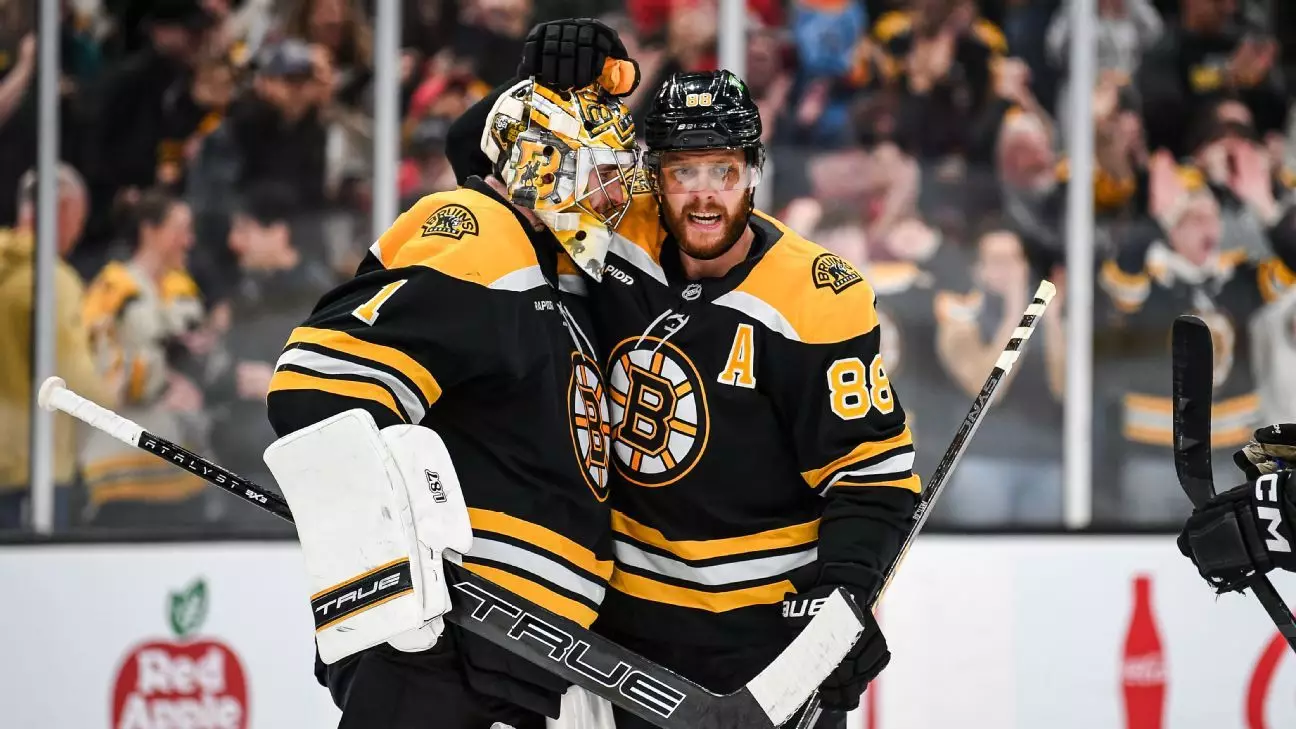The Boston Bruins’ current predicament is a stark contrast to the franchise’s rich history of triumph in the National Hockey League. CEO Charlie Jacobs recently stirred both optimism and skepticism within their fanbase by boldly proclaiming an impending return to the playoffs. This statement comes on the heels of a disappointing season that saw the Bruins finish at the bottom of the Atlantic Division, accumulating a mere 76 points and recording the lowest points percentage (.463) in almost two decades. Such a regression raises pressing questions about the team’s future direction and the leadership steering its course.
The bleak statistics and disheartening circumstances of the past season are alarming to anyone who has followed the team closely. A complete re-evaluation is necessary, as they unceremoniously fired head coach Jim Montgomery just 20 games in, alongside a disheartening series of trades that saw popular veteran players, including captain Brad Marchand, leave the squad. This forced team president Cam Neely to admit to the disappointment felt not just within the organization, but echoed by a loyal fanbase that has weathered highs and lows over a century.
The Leadership Shuffle: A Well-Intentioned Reset
It’s evident the Bruins are seeking a dynamic reset, articulated through Neely’s observations that represent more than just corporate platitudes—they echo a desire for genuine accountability. However, resetting a franchise’s direction isn’t just about making statements; it requires an actionable plan. General Manager Don Sweeney, tasked with this formidable challenge, has openly committed to reinvigorating the team’s offensive capabilities, specifically targeting improvements along the wings.
This is an essential note; the Bruins ranked a dismal 28th in the league concerning goals per game—a glaring statistic that undermines any aspiration for success. Sweeney’s focus on adding scoring talent reflects an understanding that revitalizing an offense depends on more than just past performance; it involves a strategic acquisition of players who can create and convert scoring opportunities.
But the question remains: will Sweeney’s plan be sufficient to mend the fissures of a fractured team? Relying solely on a couple of key additions may not suffice; the entire roster, as they’ve shown, must build a cohesive identity that embraces both offensive prowess and a robust defensive framework. The goal here isn’t just playoffs; it’s about reclaiming the team’s historical status as a formidable contender.
Goaltending Woes: A Critical Reality
As they reassess their approach, significant attention must also be given to the Bruins’ goaltending. The stark reality is both Jeremy Swayman and Joonas Korpisalo trended negatively concerning goals saved above expected, raising concerns about the defensive support they received—challenges the tandem of goaltenders does not fully warrant.
Historically, the Bruins have prospered with stellar goaltending, and the urgency to fine-tune this aspect cannot be understated. Defensive systems need to be honed, ensuring goaltenders can rely on their teammates while also rectifying any individual shortcomings. Sweeney’s acknowledgment of the need for improvement from both his goalies reflects awareness that even the best offensive strategy can fall short without a reinforced defensive backbone.
The Coaching Conundrum: Seeking a New Vision
In tandem with player acquisitions and defensive adjustments, perhaps the most pivotal decision is the selection of the next head coach. Joe Sacco, having served as interim coach following Montgomery’s dismissal, will compete with other potential candidates in the search, as Sweeney indicates the importance of finding someone who fits the Bruins’ core identity—strong defense and resilience. Sacco’s prior accolades and experience could prove invaluable, as he strives for a chance at establishing his own legacy while navigating the shadows left by the turmoil of the past season.
Furthermore, Sweeney himself faces uncertainty regarding his future with the organization. His role, tied to his expiring contract, opens discussions about longevity versus fresh perspectives. Neely’s contemplation for a potential extension subtly underscores the volatile nature of management in sports, where varying objectives and expectations can create chasms of improbability.
The reality is that every decision made today impacts the framework of tomorrow’s Bruins. The potential for redemption exists, but it is contingent upon careful recalibration that embraces bold risk alongside a well-established philosophy of team-first mentality. For a franchise with a storied past, the time is now to transform this adversity into an opportunity for reclamation and resurgence, ensuring that the revered Black and Gold once more echoes through the halls of playoff contention.


Leave a Reply